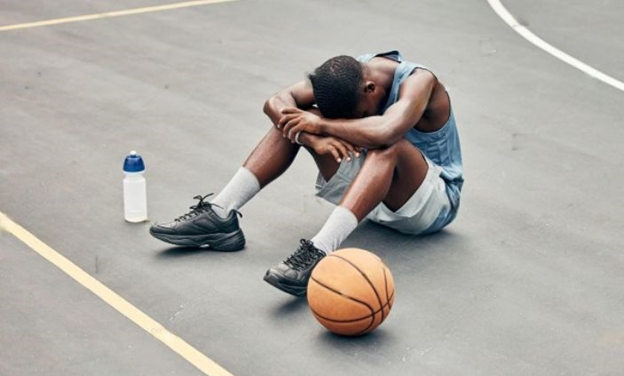Dr. rahul khanna
M.S. (ORTHO), FIASM, FIA
Specialist Joint Replacement, Arthroscopy & Sports Injury
Menu
Dr. rahul khanna
M.S. (ORTHO), FIASM, FIA
Specialist Joint Replacement, Arthroscopy & Sports Injury
Menu
The Psychological Impact of Sports Injuries

Understanding the Mental Game Behind Sports Injuries
Sports injuries are an inevitable part of an athlete’s journey, often disrupting not only their physical well-being but also taking a toll on their mental health. The road to recovery is not just about healing muscles and bones; it’s a mental and emotional challenge that requires resilience and a strong mindset. In this blog, we’ll explore the profound psychological impact of sports injuries and how athletes can navigate the mental hurdles to emerge stronger on the other side.
The Initial Blow
When an athlete faces an injury, the immediate impact is felt physically, but the psychological effects can be just as profound. The sudden disruption of a routine, the fear of losing one’s edge, and the uncertainty of the recovery process can lead to anxiety, stress, and even depression. Athletes, who are accustomed to pushing their bodies to the limit, can find it challenging to accept the vulnerability that comes with injury.
Loss of Identity
For many athletes, their sport is not just an activity; it’s an integral part of their identity. When faced with a sports injury, they often grapple with a sense of loss – not only of physical abilities but also of the lifestyle, camaraderie, and the very essence of who they are. This identity crisis can lead to a profound emotional struggle as they redefine themselves outside the realm of their sport.
The Mental Rollercoaster
The journey of recovery is rarely linear; it’s a rollercoaster ride of highs and lows. Athletes may experience moments of optimism as they witness progress, only to be followed by setbacks that can be disheartening. This emotional turbulence can impact an athlete’s mental resilience and determination, requiring a strong support system to help them navigate the challenges.
Fear of Re-Injury
Even after physical recovery, the fear of re-injury looms large in an athlete’s mind. The psychological barrier to pushing oneself as hard as before can hinder performance and the athlete’s ability to trust their body fully. Overcoming this fear requires not just physical rehabilitation but mental conditioning that rebuilds confidence and self-assurance.
Coping Mechanisms
Athletes coping with sports injuries often turn to various strategies to maintain their mental well-being. Visualization techniques, mindfulness, and positive self-talk are common tools used to stay focused on the path to recovery. Moreover, seeking professional psychological support, such as counseling or sports psychology, has become an integral part of the rehabilitation process.
Building Mental Resilience
The adversity of a sports injury can become a catalyst for building mental resilience. Athletes who successfully navigate psychological challenges often emerge stronger, both mentally and emotionally. The experience teaches them to adapt, persevere, and develop coping mechanisms that go beyond the realm of sports. This newfound mental toughness can positively impact not only their athletic performance but also various aspects of their lives.

The Importance of Support
A strong support system is instrumental in an athlete’s journey to recovery. Coaches, teammates, family, and friends play a crucial role in providing emotional support, encouragement, and motivation. Creating an environment where athletes feel understood and supported can significantly contribute to their mental well-being during the rehabilitation process.
Triumph of the Mind – Emerging Stronger from Sports Adversity
Sports injuries are more than physical setbacks; they are profound psychological challenges that test an athlete’s mental fortitude. The journey to recovery involves not only healing the body but also nurturing the mind and spirit. By acknowledging the psychological impact of sports injuries and implementing effective coping mechanisms, athletes can turn adversity into an opportunity for personal growth and emerge from the experience stronger than ever. Mind over matter becomes not just a mantra but a transformative force that propels athletes toward a brighter and more resilient future. Connect with Dr. Rahul Khanna, a renowned sports psychologist, to unlock your mental potential and navigate the challenges of sports injuries with resilience and confidence.
Emergency?
24 Hour Ready
Call Us for Emergency
+91-9828501360
Book an Appointment
Seamless Fitness Care Access: Booking an Appointment with Your
Trusted Doctor